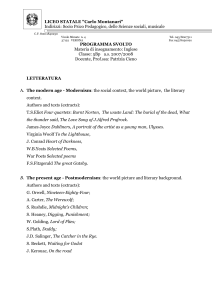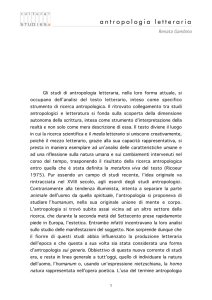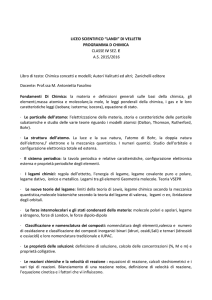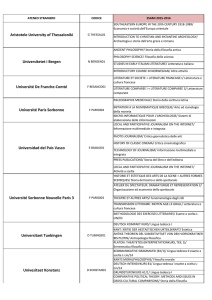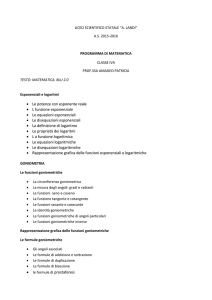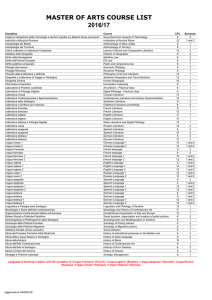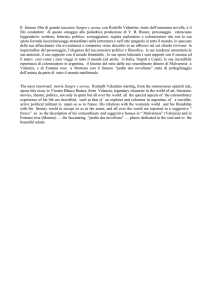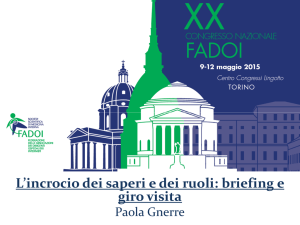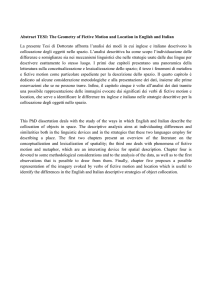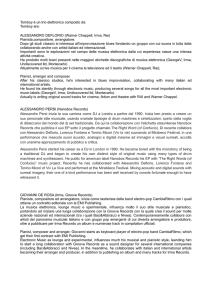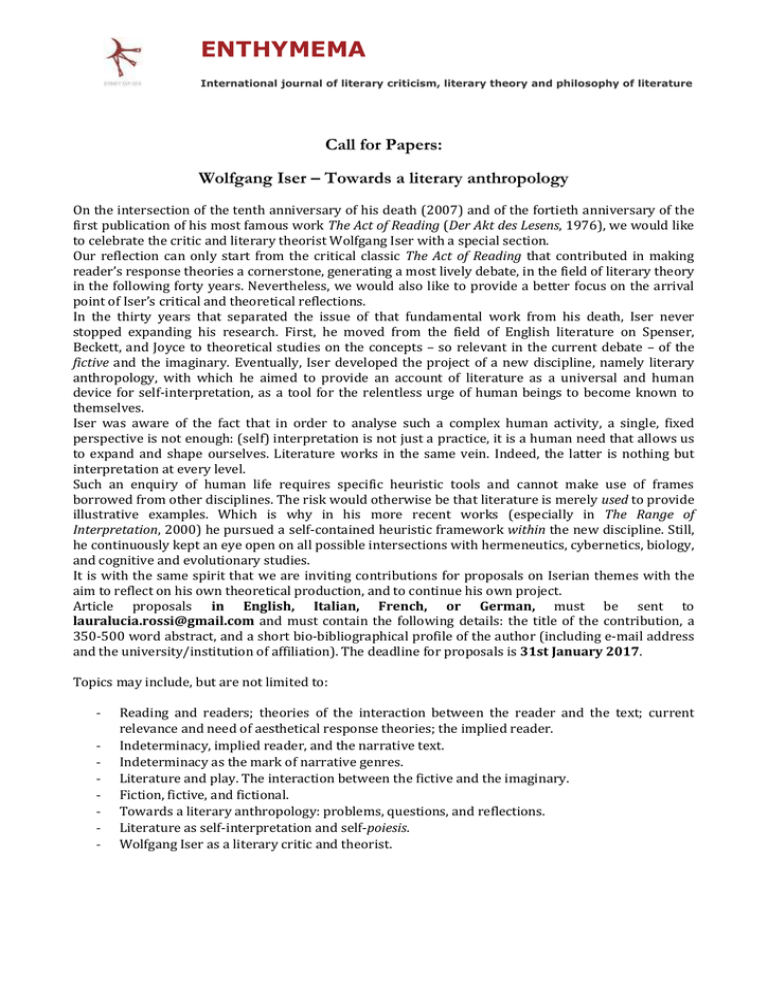
ENTHYMEMA
International journal of literary criticism, literary theory and philosophy of literature
Call for Papers:
Wolfgang Iser – Towards a literary anthropology
On the intersection of the tenth anniversary of his death (2007) and of the fortieth anniversary of the
first publication of his most famous work The Act of Reading (Der Akt des Lesens, 1976), we would like
to celebrate the critic and literary theorist Wolfgang Iser with a special section.
Our reflection can only start from the critical classic The Act of Reading that contributed in making
reader’s response theories a cornerstone, generating a most lively debate, in the field of literary theory
in the following forty years. Nevertheless, we would also like to provide a better focus on the arrival
point of Iser’s critical and theoretical reflections.
In the thirty years that separated the issue of that fundamental work from his death, Iser never
stopped expanding his research. First, he moved from the field of English literature on Spenser,
Beckett, and Joyce to theoretical studies on the concepts – so relevant in the current debate – of the
fictive and the imaginary. Eventually, Iser developed the project of a new discipline, namely literary
anthropology, with which he aimed to provide an account of literature as a universal and human
device for self-interpretation, as a tool for the relentless urge of human beings to become known to
themselves.
Iser was aware of the fact that in order to analyse such a complex human activity, a single, fixed
perspective is not enough: (self) interpretation is not just a practice, it is a human need that allows us
to expand and shape ourselves. Literature works in the same vein. Indeed, the latter is nothing but
interpretation at every level.
Such an enquiry of human life requires specific heuristic tools and cannot make use of frames
borrowed from other disciplines. The risk would otherwise be that literature is merely used to provide
illustrative examples. Which is why in his more recent works (especially in The Range of
Interpretation, 2000) he pursued a self-contained heuristic framework within the new discipline. Still,
he continuously kept an eye open on all possible intersections with hermeneutics, cybernetics, biology,
and cognitive and evolutionary studies.
It is with the same spirit that we are inviting contributions for proposals on Iserian themes with the
aim to reflect on his own theoretical production, and to continue his own project.
Article proposals in English, Italian, French, or German, must be sent to
[email protected] and must contain the following details: the title of the contribution, a
350-500 word abstract, and a short bio-bibliographical profile of the author (including e-mail address
and the university/institution of affiliation). The deadline for proposals is 31st January 2017.
Topics may include, but are not limited to:
-
Reading and readers; theories of the interaction between the reader and the text; current
relevance and need of aesthetical response theories; the implied reader.
Indeterminacy, implied reader, and the narrative text.
Indeterminacy as the mark of narrative genres.
Literature and play. The interaction between the fictive and the imaginary.
Fiction, fictive, and fictional.
Towards a literary anthropology: problems, questions, and reflections.
Literature as self-interpretation and self-poiesis.
Wolfgang Iser as a literary critic and theorist.
ENTHYMEMA
International journal of literary criticism, literary theory and philosophy of literature
-
Influence of Iser’s theories in the current critical and theoretical debate.
The application of Iser’s theories in the field of narrative studies.
Wolfgang Iser – Verso un’antropologia della letteratura
A metà strada tra il decimo anniversario della sua scomparsa (avvenuta nel 2007) e il quarantesimo
della pubblicazione originale della sua opera più nota, L’atto della lettura (Der Akt des Lesens, 1976),
vogliamo celebrare con una sezione monografica il critico e teorico della letteratura Wolfgang Iser.
Se la nostra riflessione non può non prendere le mosse dal fondamentale L’atto della lettura che ha
reso la teoria del reader’s response un punto fermo e un momento di dibattito vivissimo per la teoria
letteraria in tutti i quarant’anni a seguire, vorremmo altresì mettere a fuoco il punto di arrivo
dell’attività teorica e critica di Iser. Nei trent’anni che hanno separato l’apparizione di quel suo volume
seminale dalla sua scomparsa, infatti, egli non ha mai smesso di espandere le proprie ricerche,
passando dagli studi di anglistica su Spenser, Beckett e Joyce ad affondi teoretici sui concetti – così
attuali – di fittivo e immaginario, fino al progetto di una nuova disciplina, l’antropologia letteraria, con
cui Iser auspicava di poter rendere conto della letteratura come dispositivo universale e umano di
auto-interpretazione e modellamento, strumento di quella inveterata urgenza degli esseri umani di
divenire presenti a se stessi.
Iser era consapevole del fatto che per analizzare la complessità di una tale attività umana non è
sufficiente un unico punto di vista: l’(auto)interpretazione non è soltanto una prassi, ma una necessità
antropologica, che ci permette di estenderci e di modellarci, proprio come la letteratura stessa. La
letteratura, dal canto suo, è interpretazione a ogni livello.
Un’indagine di questo tipo necessita perciò di strumenti euristici propri, non può avvalersi di cornici
descrittive di altre discipline. Il rischio è infatti sempre che la letteratura si trovi semplicemente
piegata a fornire esempi illustrativi. Era proprio questo l’obiettivo di Iser: trovare un apparato
euristico all’interno della disciplina stessa, obiettivo che ha perseguito attraverso le sue opere più
recenti (in particolare The Range of Interpretation, 2000) con un occhio bene aperto alle possibili
intersezioni tra ermeneutica, cibernetica, biologia, studi cognitivi ed evoluzionistici.
È con lo stesso spirito che dunque invitiamo all’invio di proposte di articoli e interventisu tematiche
iseriane in senso ampio, sia per riflettere sulla sua produzione teorica, ma anche per tentare di
continuarne il percorso.
Le proposte di intervento, in italiano, inglese, francese o tedesco devono essere inviate all’indirizzo
e-mail [email protected] e devono contenere le seguenti informazioni: titolo
dell’intervento, abstract di 350-500 parole e un breve profilo biobibliografico dell’autore (che includa
indirizzo e-mail e università/ente di affiliazione). La scadenza per l’invio delle proposte è 31 gennaio
2017.
Offriamo i seguenti spunti solo a titolo di linee guida:
-
Lettura e lettori; teorie dell’interazione tra lettore e testo; attualità, necessità, superamento
delle teorie della risposta estetica; il lettore implicito.
Indeterminatezza e lettore implicito
L’ndeterminatezza come marca del genere romanzesco.
Letteratura e gioco; l’interazione tra fittivo e immaginario;
Finzione, fittivo, finzionale.
Verso un’antropologia della letteratura: problemi, questioni, riflessioni.
ENTHYMEMA
International journal of literary criticism, literary theory and philosophy of literature
-
Letteratura come auto-interpretazione e auto-poiesi
Wolfgang Iser – critico e teorico della letteratura;
Influenza delle teorie di Iser sulla discussione critica e teorica recente.
Applicazioni delle teorie di Iser nel campo degli studi narrativi.

